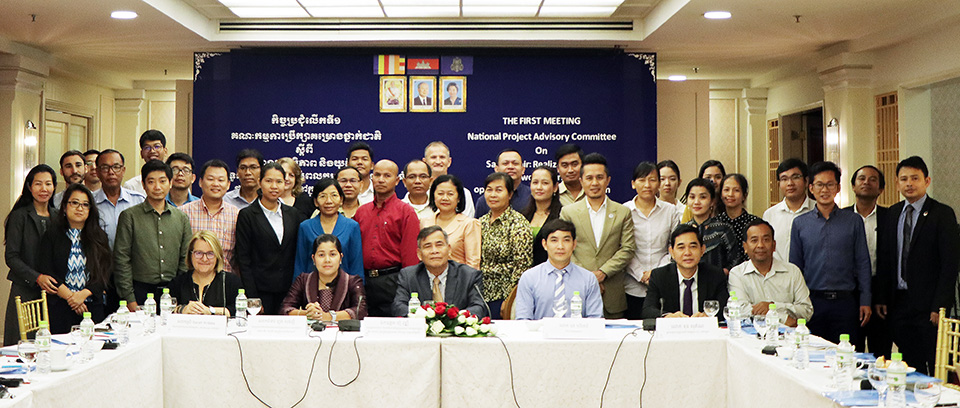Priority given to legal protection for female migrant workers in Cambodia
Date:
Author: Ziyin LU
Phnom Penh, Cambodia — The Cambodian Government and its development partners have decided that efforts to protect female migrant workers should give priority to ensuring that those who abuse them are punished under the law.
The National Project Advisory Committee on female migrant workers’ rights and opportunities made the commitment at a 30 October meeting to decide priority actions for their work plan for 2019.

The Committee is jointly led by the European Union, International Labour Organization and UN Women. Other core member representatives are from Government ministries, labour organizations, researchers and academics, nongovernmental organizations and United Nations agencies.
The Committee was formed as part of the project Safe & Fair: Realizing Women Migrant Workers’ Right and Opportunities in the ASEAN region, an EU-UN Spotlight Initiative to eliminate violence against women and girls (https://www.un.org/en/spotlight-initiative/index.shtml). The Committee provides technical and strategic guidance to the project in Cambodia and ensures that it remains aligned with country priorities and national frameworks.
In April, UN Women organized a National Consultation workshop on the Safe & Fair project. That brought together groups working on ending violence against women, labour and migration, and trafficking to discuss a shared roadmap for the next five years. The priorities they identified were discussed at the 30 October meeting as part of reaching a consensus on the annual work plan.
Safe & Fair runs from 2018 to 2022 and targets five provinces in Cambodia, including Phnom Penh, where there are many female workers who have returned from Thailand. It aims to develop a comprehensive governance framework to protect the workers; improve the quality of services on preventing and responding to violence against them; and to collect data and share good practices on helping them.
Female migrants are more vulnerable to violence and trafficking, and survivors of abuse have limited access to quality services.
At the 30 October meeting, the Committee added to the 2019 work plan priority actions to:
- Strengthen law enforcement to end impunity and improve the migrants’ access to essential services.
- Develop strategies to deliver authoritative information to the women and collect data on the needs of those who experienced violence and trafficking in destination countries.
- Improve partnerships in protecting the women, and in preventing and prosecuting violent attacks.
- Map and coordinate the efforts of front-line service providers in information, health, and social and criminal justice.
- Produce and apply policy-relevant official data and analysis on women’s labour migration and on violence against women.
“Women migrant workers are particularly vulnerable to violence, abuse, and face added difficulties in accessing legal protection, justice and support services,” said Sarah Knibbs, Acting Country Representative of UN Women Cambodia. “Now we have an opportunity to ensure that the remarkable commitments made in Cambodia on ending violence against women are realized for women migrants.”
“People are not things for selling,” Hou Vuthdy, Under Secretary of State and Minister of Labour and Vocational Training, said at the 30 October meeting.
“Working in a safe and fair environment is human rights and respect for dignity,” he said. “The local community should have a clearer image about safe migration, and awareness-raising among women migrant workers is important and urgent in the local context.”